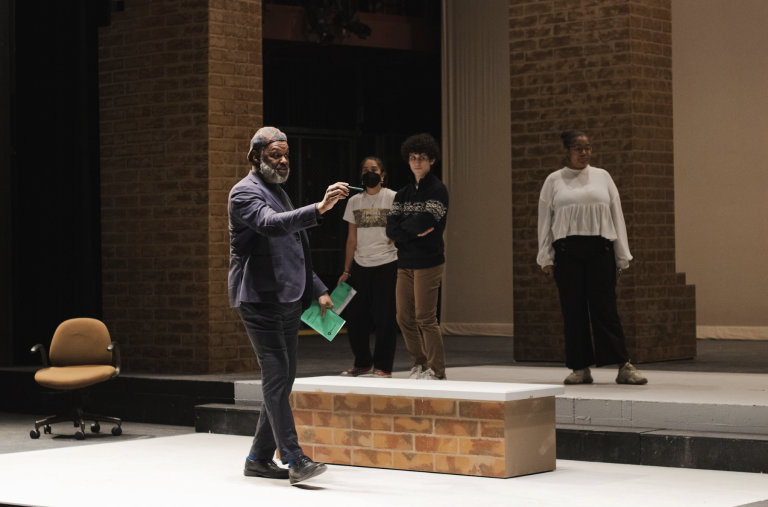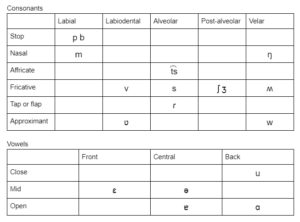Jules Bourbeau ‘25
Arts Editor
This past Sunday, September 18th, English indie band Alt-J celebrated the tenth anniversary of their album An Awesome Wave’s distribution in America. The 13-track record—14, if counting the hidden song on the CD release—is a rare example of a musical act solidifying their sound immediately upon their debut release.
Fittingly, we begin with “Intro,” which itself starts with over a minute of instrumental. Now, lead vocalist Joe Newman has one of the most iconic voices of indie music, but when An Awesome Wave first premiered, his somewhat-squeaky almost stumbling style had yet to cement itself in the indie scene. Although these qualities may sound unappealing—and indeed, they are often parodied, such as the (in)famous video by the band Fleece titled “how to write an Alt-J song”—they nevertheless attract myself and many others. “Intro” also establishes another of Alt-J’s iconic features: their lyrics. The band’s semi-nonsensical lyrics take after the Beat poets’ tendency to write for sound and emotion, creating a phonetic image as opposed to a literary one.
Having made it through “Intro,” the rest of the album unfolds itself. The next track is titled simply with a fleuron, a non-alphanumeric symbol used in printing. It does, however, have an alternate subtitle, “Ripe & Ruin,” allowing it to be referred to more easily. This short interlude matches its stuttering lyrical content with a quick 6/8 rhythm broken up by hefty pauses.
STEM majors will appreciate “Tessellate” which uses the mathematical process of tessellation as a metaphor for hooking up with someone. In keeping with the sharp percussion of the previous two tracks, “Tessellate” slows things down considerably, especially in the bridge.
The sensual “Tessellate” immediately takes a nosedive into the depressing with the next song, “Breezeblocks.” While undoubtedly their most famous song, it also contains some of the most out-there concepts on the record. The song’s narrator expresses such an obsessive desire to possess someone that they would go as far as to kill or even cannibalize them.
We get another fleuron-titled interlude, this time a sparse guitar melody. This is followed by “Something Good,” with its admittedly standard chorus interrupted by colorful verses describing a matador fight. Alt-J’s skill with harmonies really shines on this track, accompanied by folk-esque guitars reminiscent of the bullfighting ring itself.
I consider the next two songs, “Dissolve Me” and “Matilda,” to be companions due to being two of the slowest songs on the track list. “Dissolve Me” is like the musical equivalent of watching the colors explode under your eyelids as you drive through a sunny forest half asleep. “Matilda” while at the same sedate speed, harbors a darker and more desperate tone. The latter also establishes two more Alt-J tropes: random bouts of French and songs referencing films.
“Ms,” while certainly a stellar track, functions best as a transition between two songs. The pace begins to speed up again, a symmetrical escalation reversing the gradual slow-down from the first half of the record. “Fitzpleasure,” then, is the mirror to “Tessellate.” The lyrics are even more indecipherable than usual—that is if you can understand Newman’s singing which amazingly manages to sound frightening despite its high-pitched nasal tone. It all lends to a frenzied, wonderfully chaotic experience.
We are granted a brief respite in the form of the final fleuron interlude—a moment of tender piano—before being returned to fear in the form of “Bloodflood.” The song traces the human stress response in musical form, from the initial threat to the adrenaline rush to the eventual cooldown. The percussion in particular stands out here, being reminiscent of your own blood pounding in your ears.
Alt-J refuse to back down with “Taro,” a brutal re-telling of photojournalist Robert Capa’s death while on assignment in Việt Nam during the First Indochina War. I highly suggest digging deeper into his story, along with that of his lover and namesake of the song, Gerda Taro, to enjoy the song on an even deeper level.
If you have yet to have heard An Awesome Wave in the ten years since its release, then you will have the enviable joy of experiencing this record for the first time. The band’s follow-up, This Is All Yours, has a very similar sound which fans of Alt-J’s debut will undoubtedly enjoy just as much. The next two releases, RELAXER and The Dream, the latter of which dropped early this year, stray from the formula presented in the first two records slightly while still maintaining the same charms that earned them their popularity.





+ There are no comments
Add yours